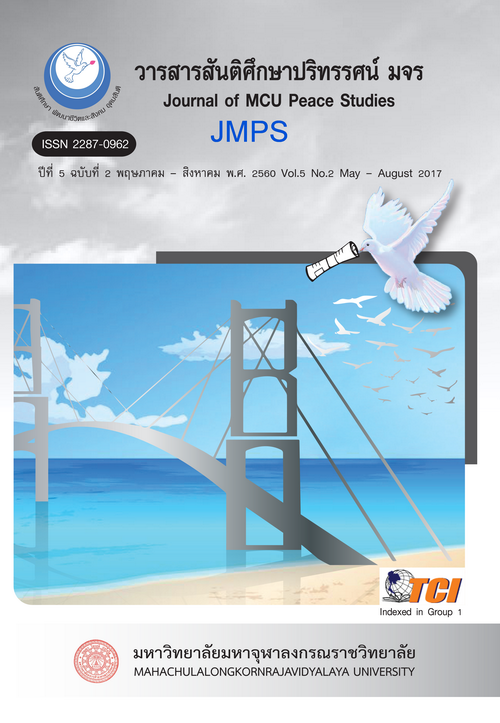The Moral Responsibility: Theravada Philosophical Perspective
Main Article Content
บทคัดย่อ
This research article has three objectives: 1) to study the concept of the moral responsibility in Theravada philosophy, 2) to study the argument on the moral responsibility in Theravada philosophy, and 3) to analysis the moral responsibility according to Theravada philosophical point of view. This is a qualitative research.
The study revealed that the moral responsibility in Theravada philosophy is obtaining fruits of good and bad actions based on two moral responsibility levels: 1) law of action or Karmic Laws, and 2) social norms according to social justification. They consist of three important factors: 1) intention 2) action and 3) its fruits. There are two moral judgements for responsibility: 1) judgement of the causes of action and 2) judgement of the fruits of action with its internal and external fruits.
For the arguments of the moral responsibility in Theravada philosophy, there are three schools: 1) Determinism; human being does not have the moral responsibility because of no free will to do by oneself, 2) Indeterminism; human being has the moral responsibility because they have free will to do, and 3) Naturalism; human being has the moral responsibility, though one is sometimes free or not free in decision.
Article Details
ทัศนะและความคิดเห็นที่ปรากฏในบทความในวารสาร ถือเป็นความรับผิดชอบของผู้เขียนบทความนั้น และไม่ถือเป็นทัศนะและความรับผิดชอบของกองบรรณาธิการ ยินยอมว่าบทความเป็นลิขสิทธิ์ของวารสาร


